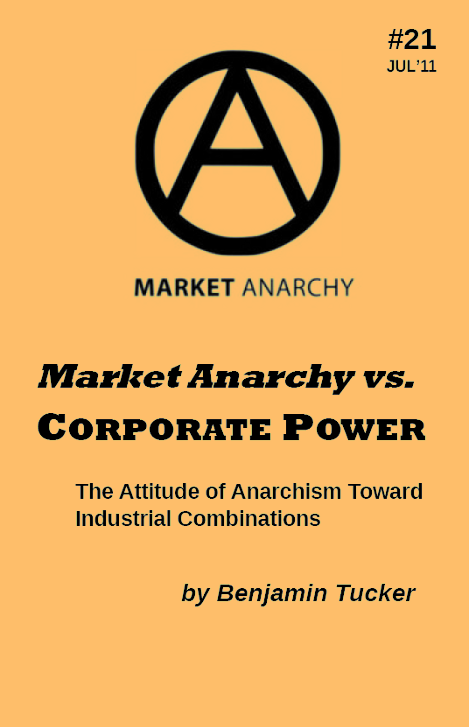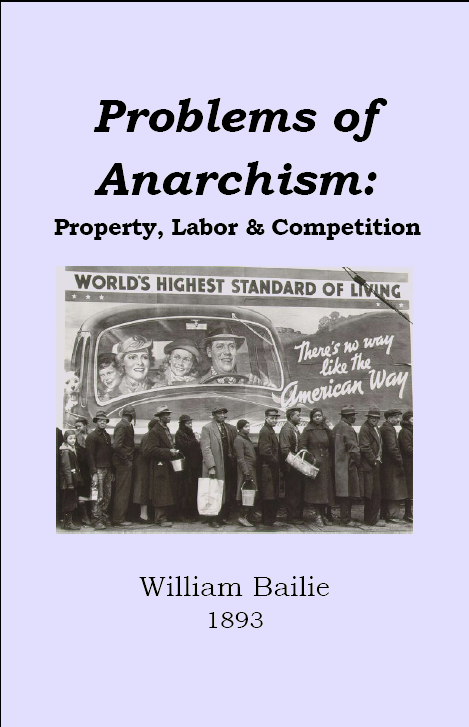Here’s Juan Cole, Informed Comment 2011-08-12: Paul, Santorum and the Sixth War (on Iran):[]
A significant stream within [Right-wing] libertarianism theorizes war as the ultimate in this racket, whereby some companies use government to throw enormous sums to themselves by waging wars abroad and invoking patriotic themes. This analysis is remarkably similar to that of Left anarchists such as Noam Chomsky.
The difference is that for anarcho-syndicalists like Chomsky, the good guys of history are the workers and ordinary folk, whereas for Libertarians, it is entrepreneurs. Both theories depend on a naive reading of social interest. Right anarchists seem not to be able to perceive that without government, corporations would reduce us all to living in company towns on bad wages and would constantly be purveying to us bad banking, tainted food, dangerous drugs, etc. I mean, they behave that way when they can get away with it even when there is supposed government oversight, usually by capturing the government oversight agency that should be regulating them and then defanging it (e.g. BP and the Minerals Management Service). On the environment, private companies would never ever curb emissions without government intervention because of the problem of the commons. (Tellingly, Ron Paul calls global climate change a "hoax.")
And, what makes the Libertarians think that if there were no governments or only weak governments, the corporations would not just wage the wars themselves? The East India Companies of Britain and the Netherlands behaved that way. India was not conquered by the British government, but by the East India Company. Likewise what is now Indonesia was a project of the Dutch East India Company. Libertarians have difficulty imagining warmongering corporations who pursue war all on their own without any government involvement.
And below, in comments on the post:
The theory that big corporations exist only because of government, and that monopoly capitalism is a result of government, is wrong. In fact, it is so obviously wrong and ahistorical (the biggest corporations and the strongest monopolies have occurred in the most laissez-faire societies) that it bewilders me how intelligent people ever came to believe it.
Well, you know, when left-libertarians get into arguments with progressives about this sort of thing, and we point out that, historically speaking, American-style capitalism did not really arise in anything resembling a free market — that there never has been anything resembling a free market — and when we point to the actual history of regulatory capture, legal monopoly, state subsidy, government dependence, etc. that historically lies behind commercial empires like the East India Companies (government-chartered and government-protected monopolies), British Petroleum (until recently a wholly owned subsidiary of the United Kingdom), Standard Oil and its descendents, Ma Bell and its descendents, General Electric, J.P Morgan-Chase, Bank of America, General Motors, etc. etc. etc. — and which created and sustained the family fortuens of the Rockefellers, Carnegies, Vanderbilts, Morgans, Goulds, ibn-Sauds, et al. — the response to this discussion of the historical sources of actually-existing capitalism is always met by a purely hypothetical alternative history, in which, it is alleged, such titanic concentrations of wealth, even though they actually arose in a system of privilege that had nothing to do with free markets, would still have arisen and maintained themselves just as well under purely hypothetical conditions of laissez-faire, even without all the concentrating, insulating, and subsidizing efforts that the manorial and corporate states have so energetically made on their behalf. If this claim is argued for at all, it is not argued for historically, since, of course, there are no historical examples of it ever having happened. It is instead argued for apriori, based on well, why wouldn’t they
sorts of appeals to the nastiness of businessmen[], and the occasional reference to ahistorical hypotheticals or game-theoretic models, like Garret Hardin’s Tragedy of the Commons
[] Then left-libertarians are accused of being naive.
But if we respond to this hypothetical speculation by adding on, alongside the history we have already discussed, some more general, apriori economic reasons to believe that stable monopolies and cartels cannot maintain themselves without government privilege, that freed markets would tend to dissipate concentrated fortunes, and that they would systematically contain and undermine, rather than entrenching, monopolies and cartels, then we are accused of utopian theorizing, and told that our view of markets is ahistorical.
Apparently we can’t win. Maybe that’s the point; but I think a rhetorical victory that actually engaged with the historical arguments being offered, or with the apriori arguments being offered, rather than simply waving them off as either nonexistent or obviously beneath the notice of intelligent people, might be a more satisfying achievement.

